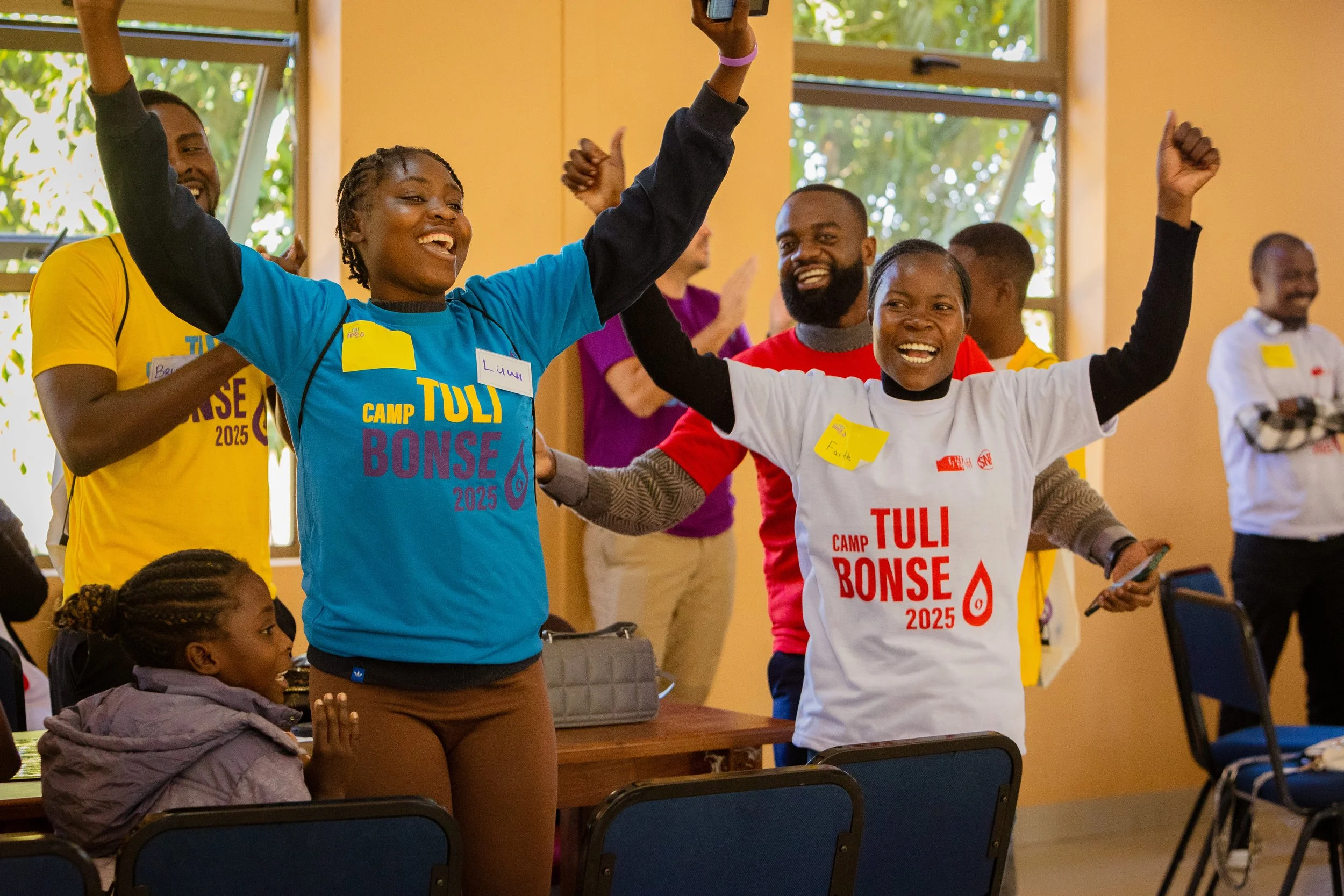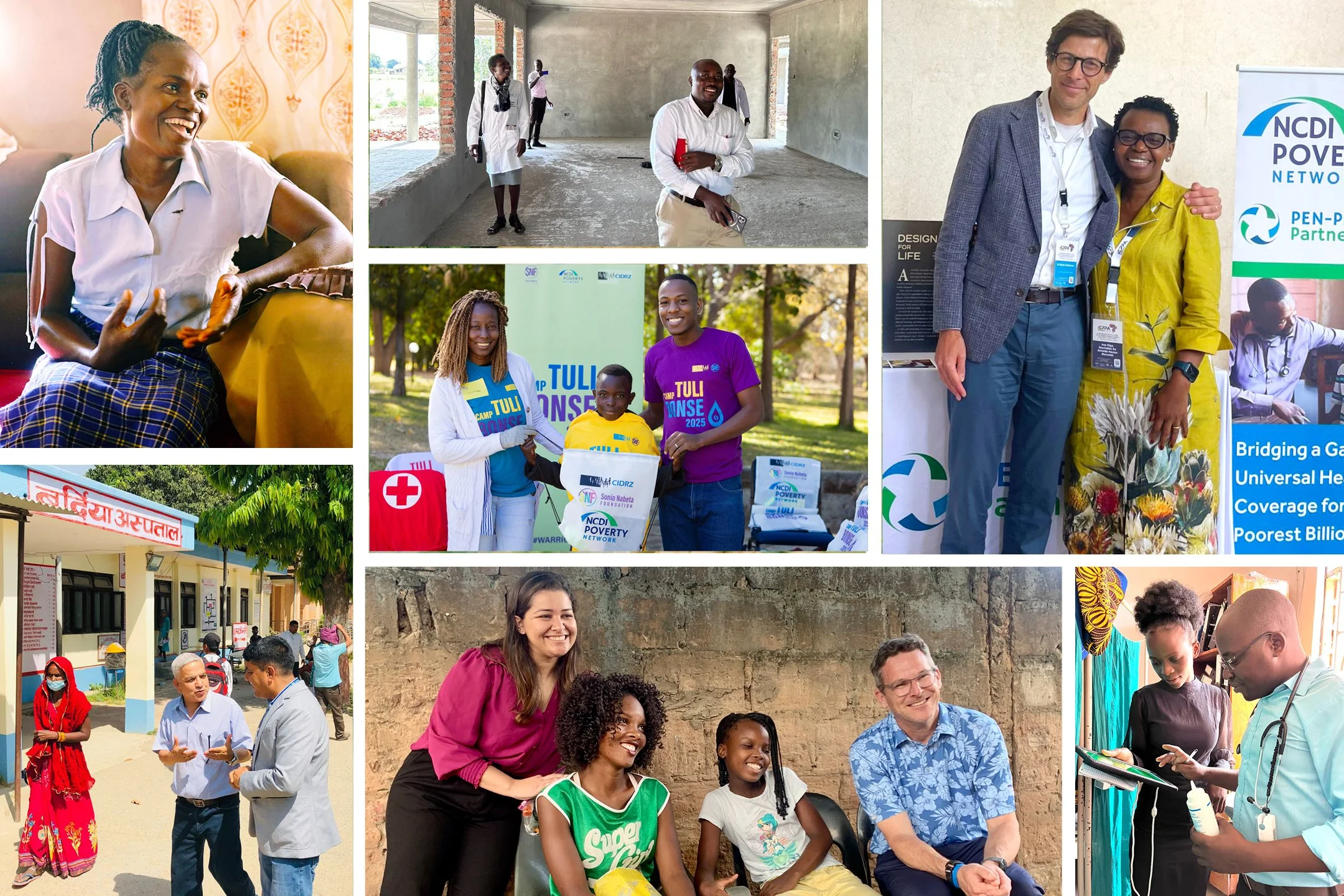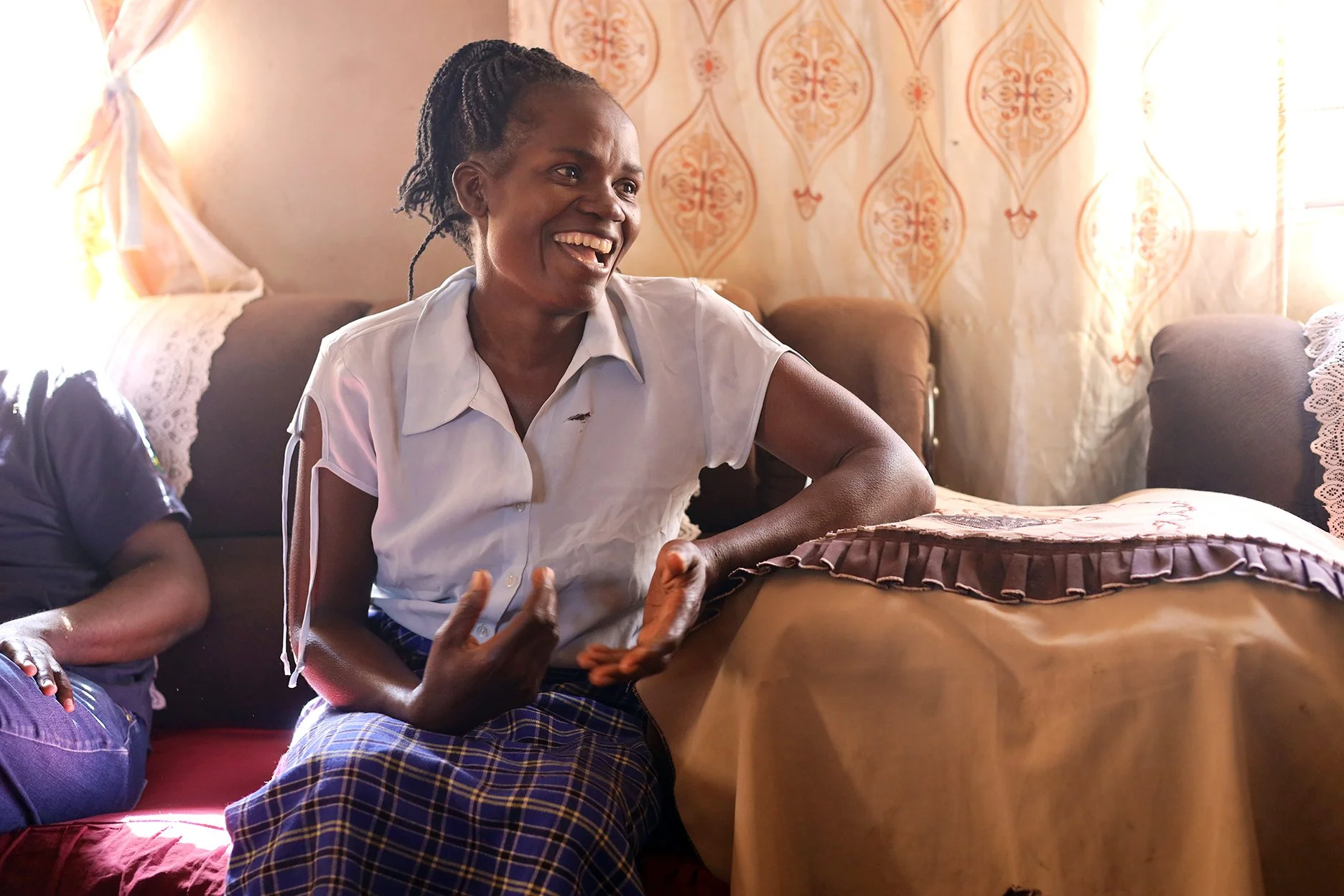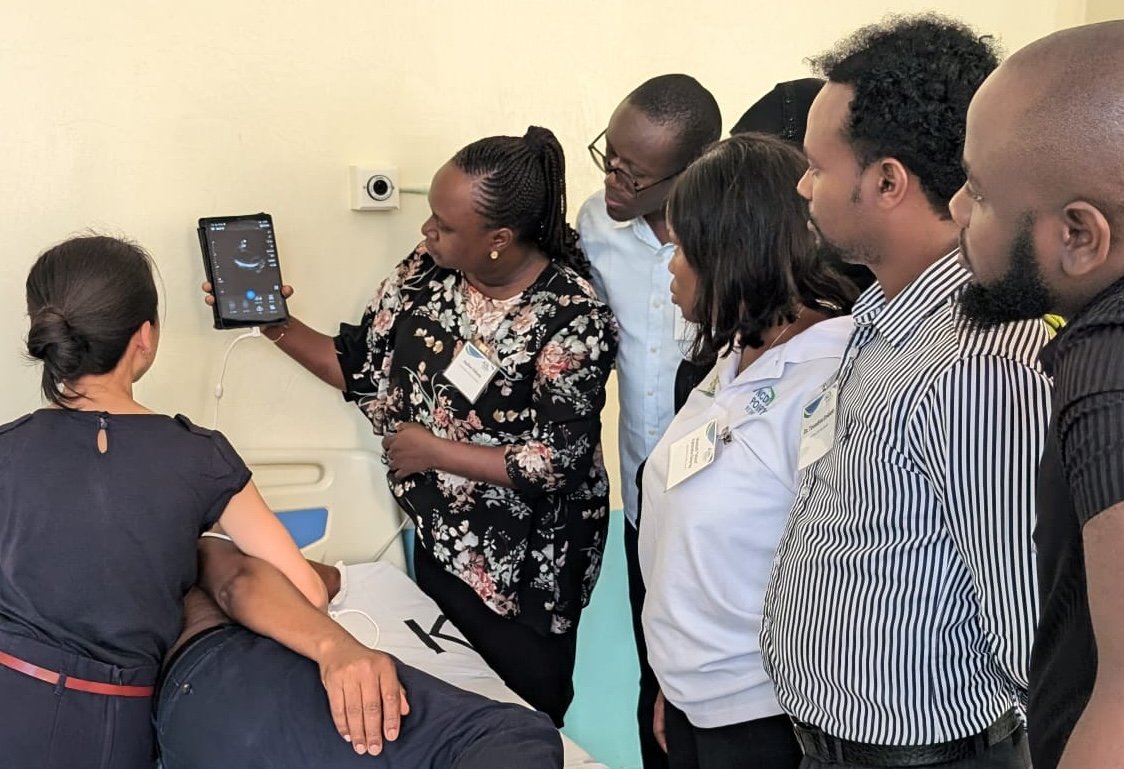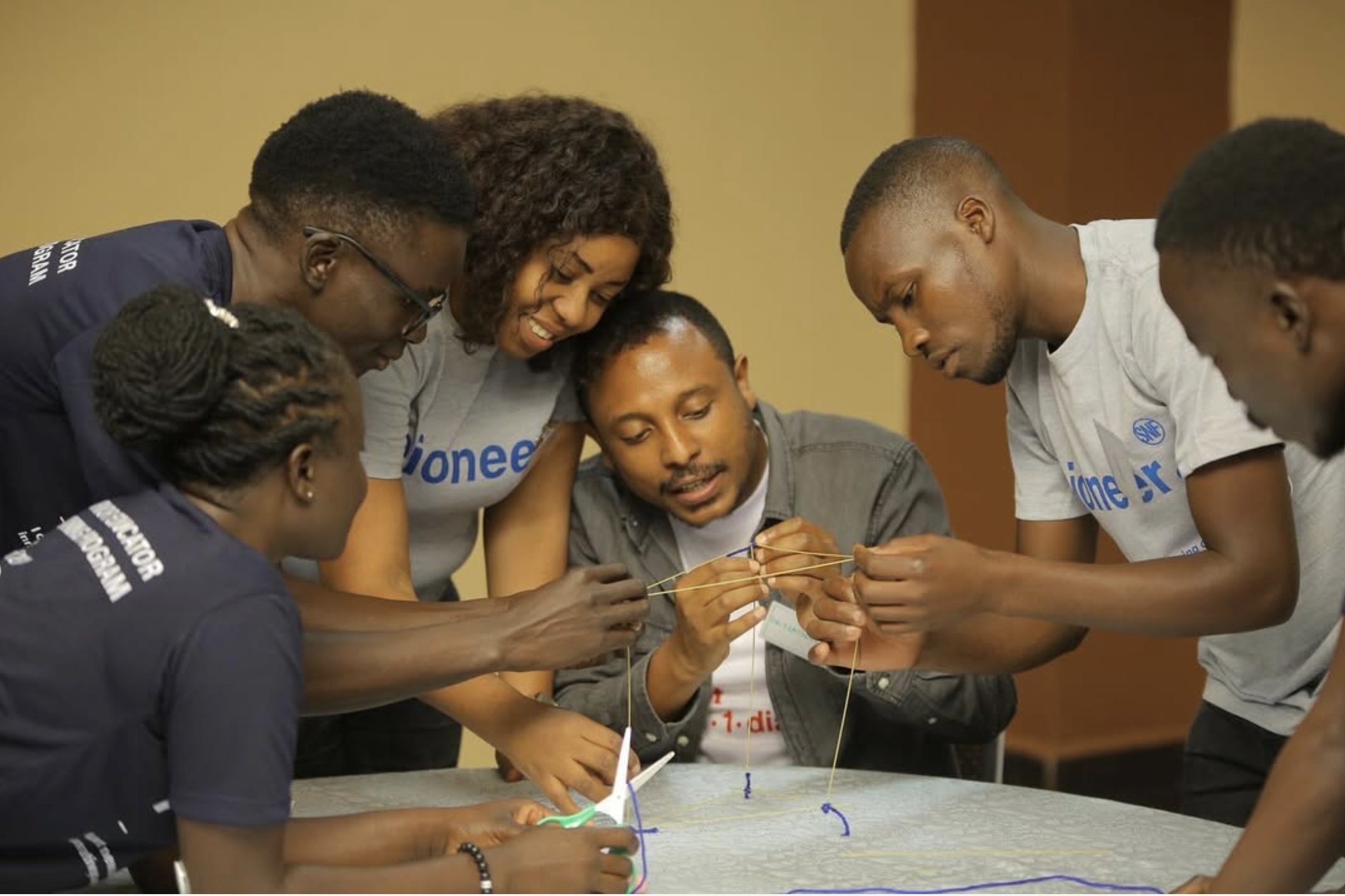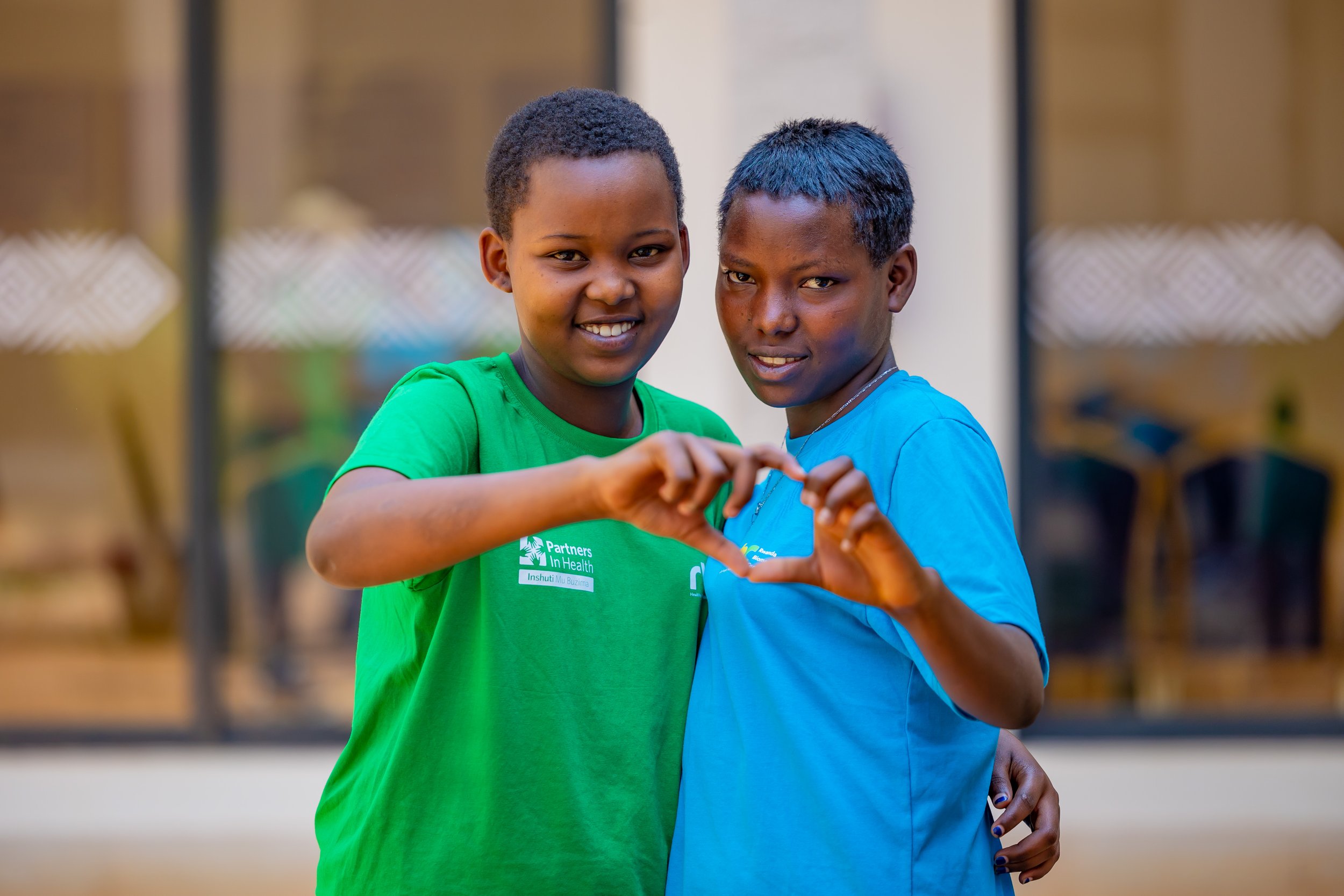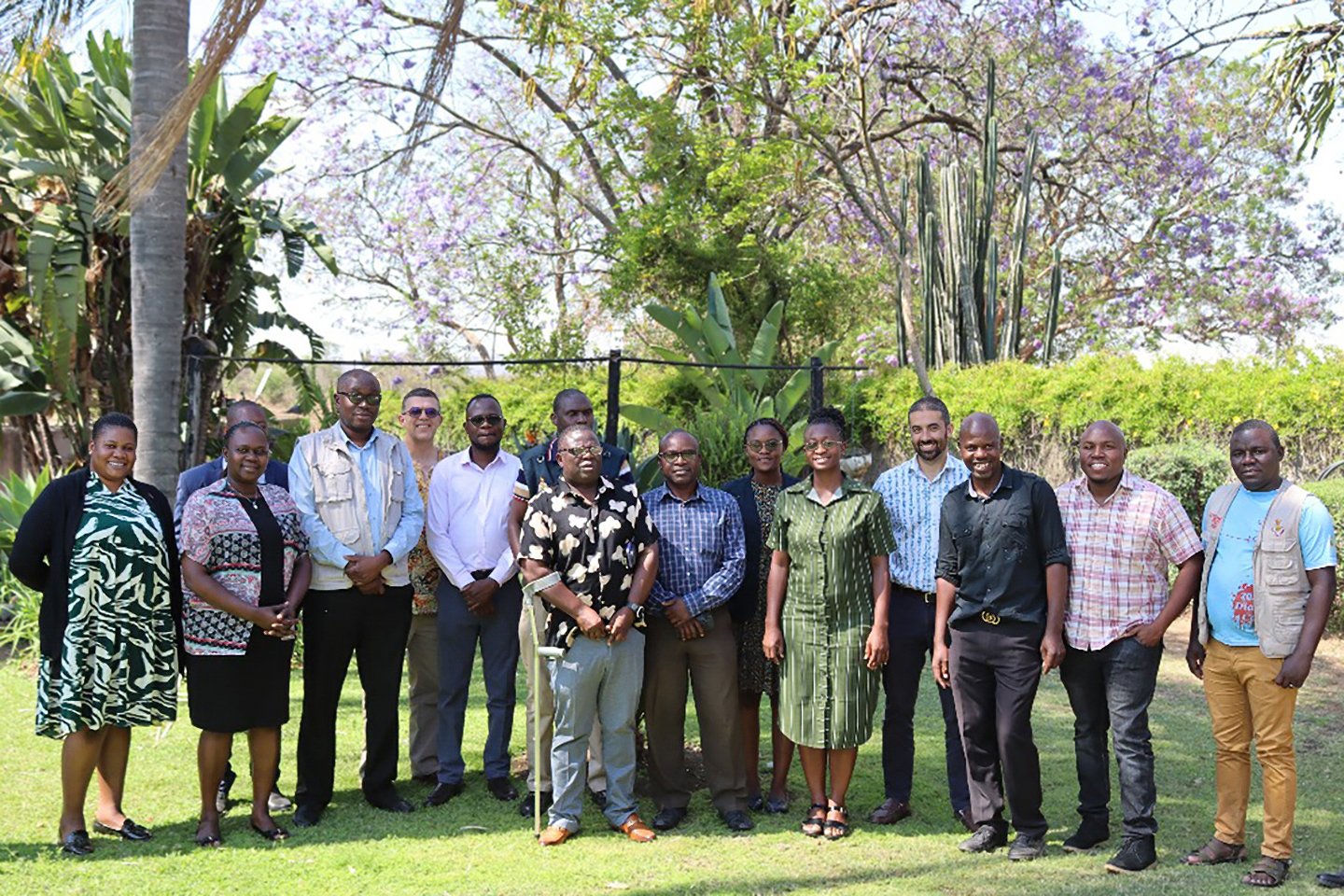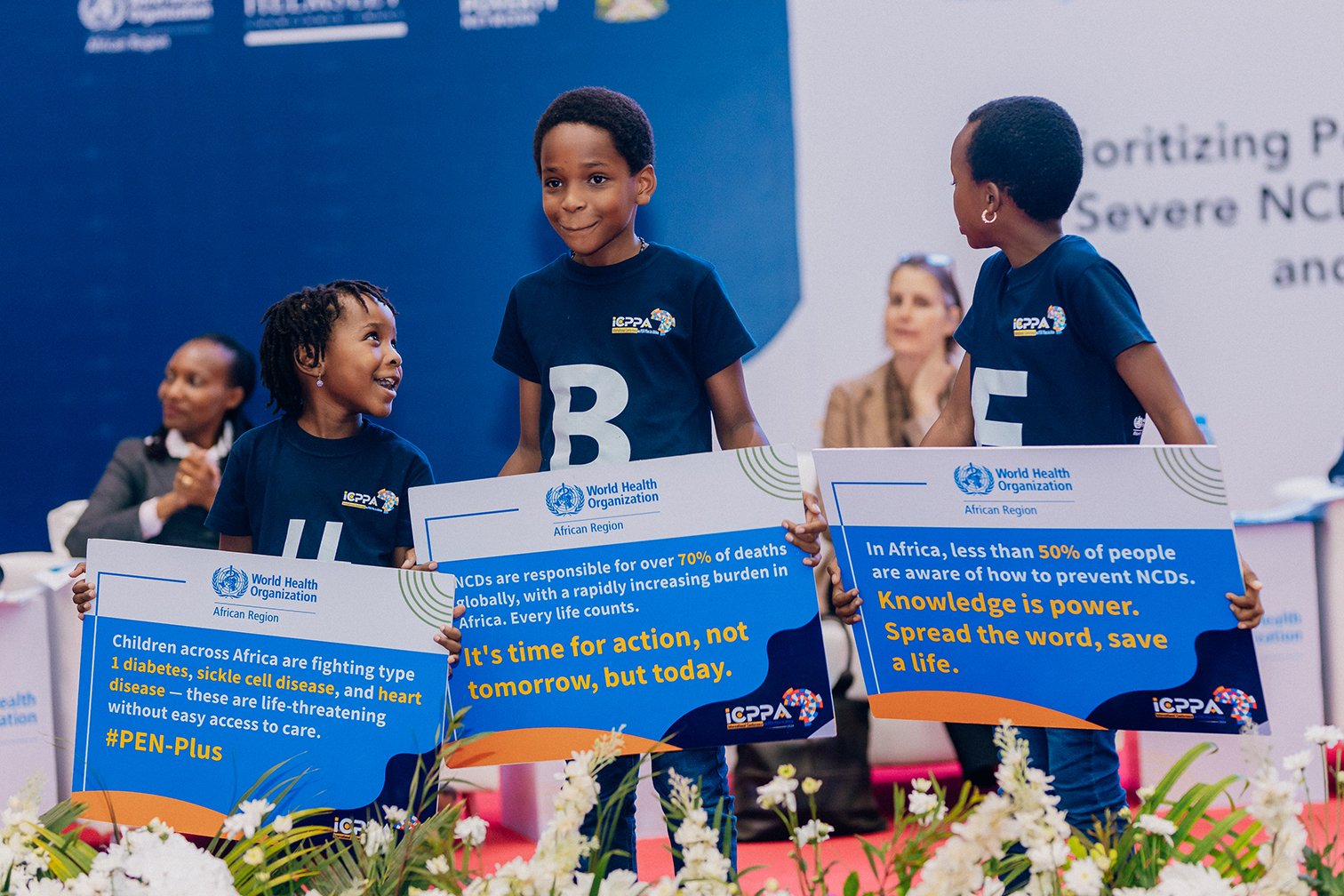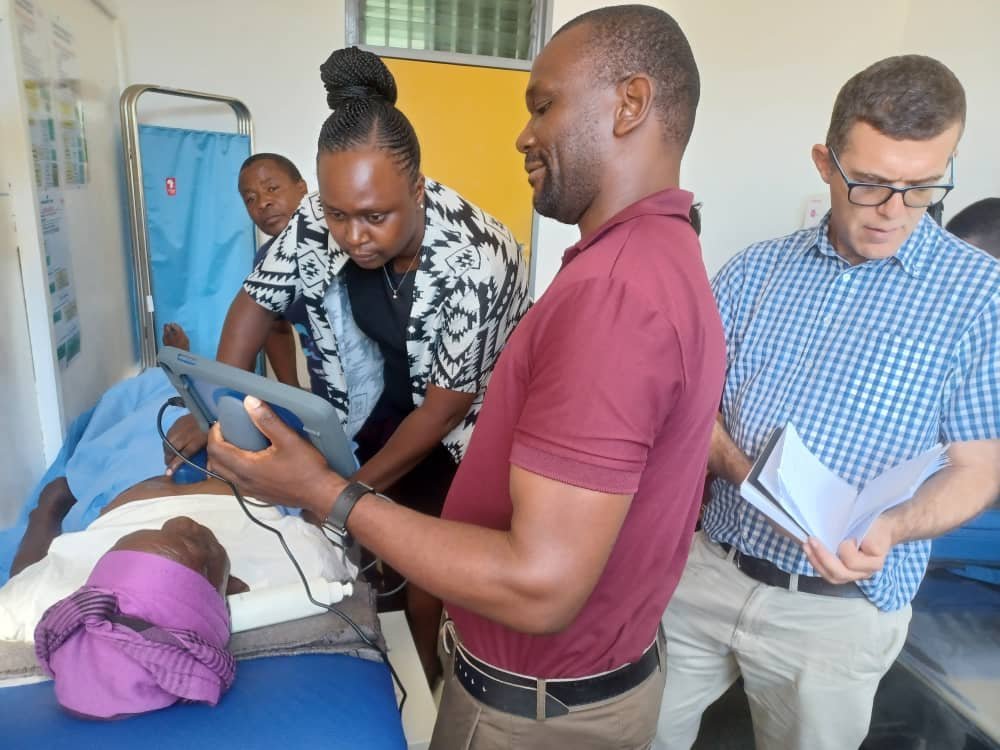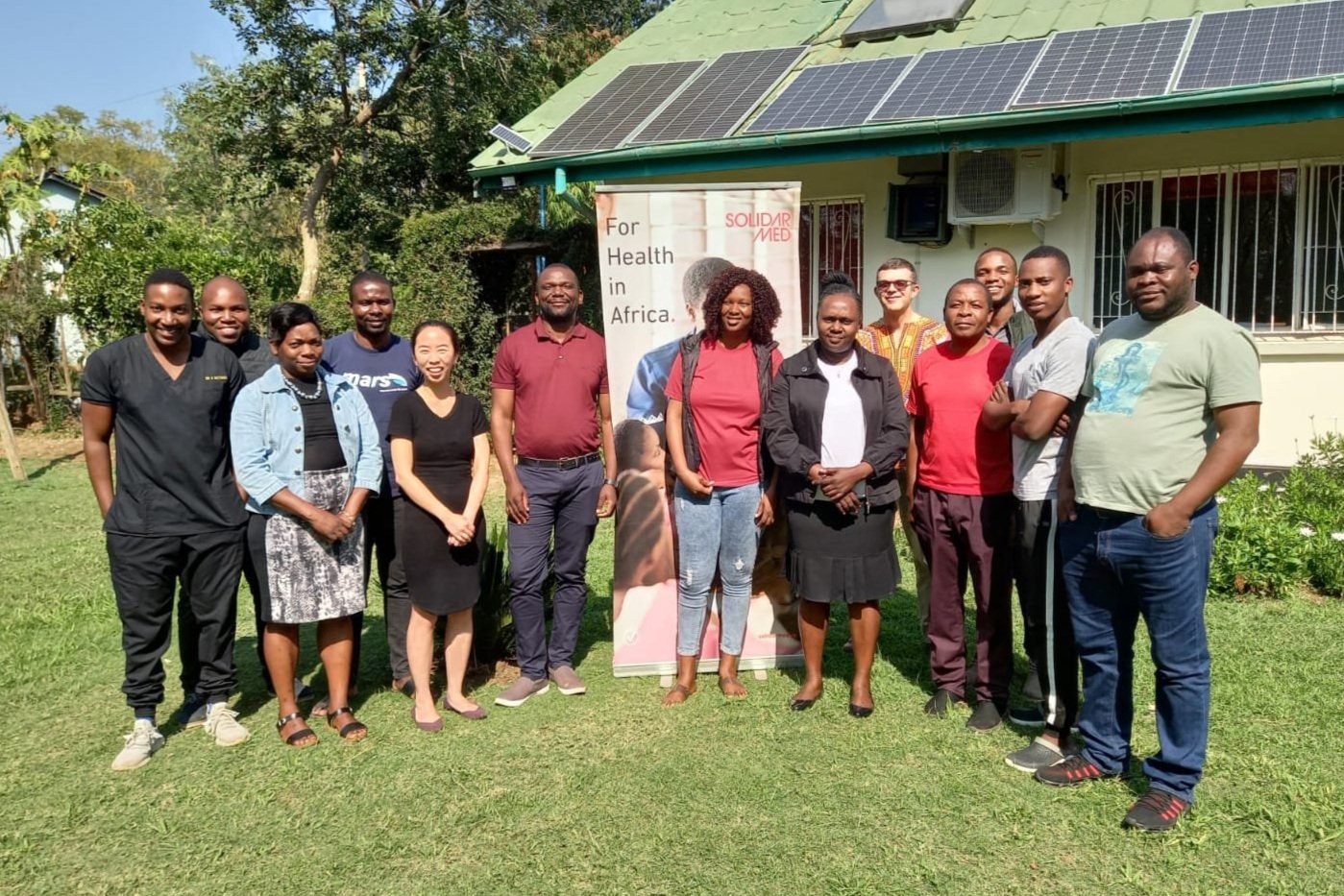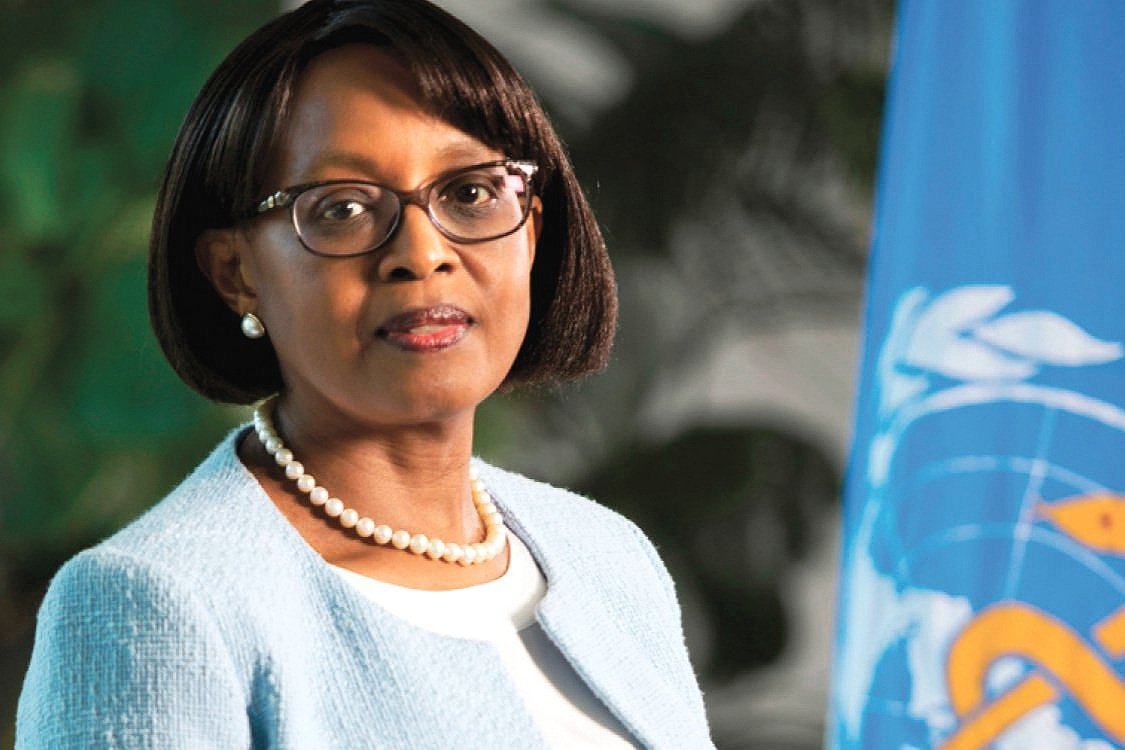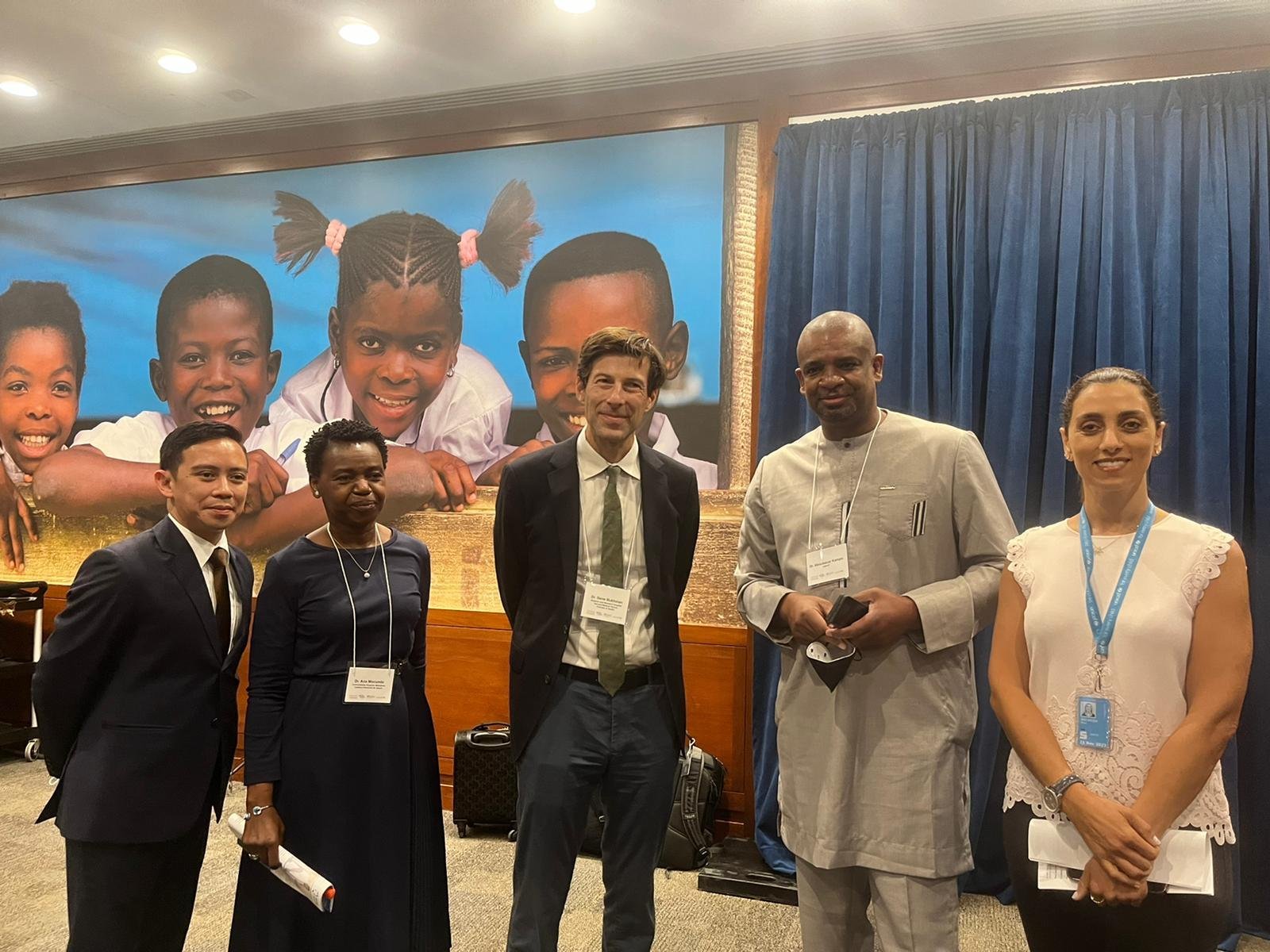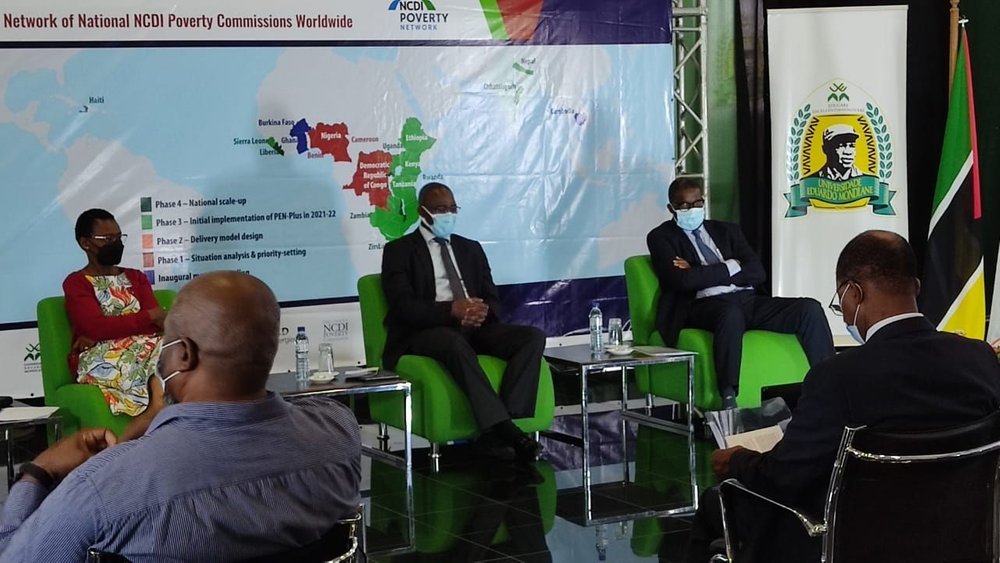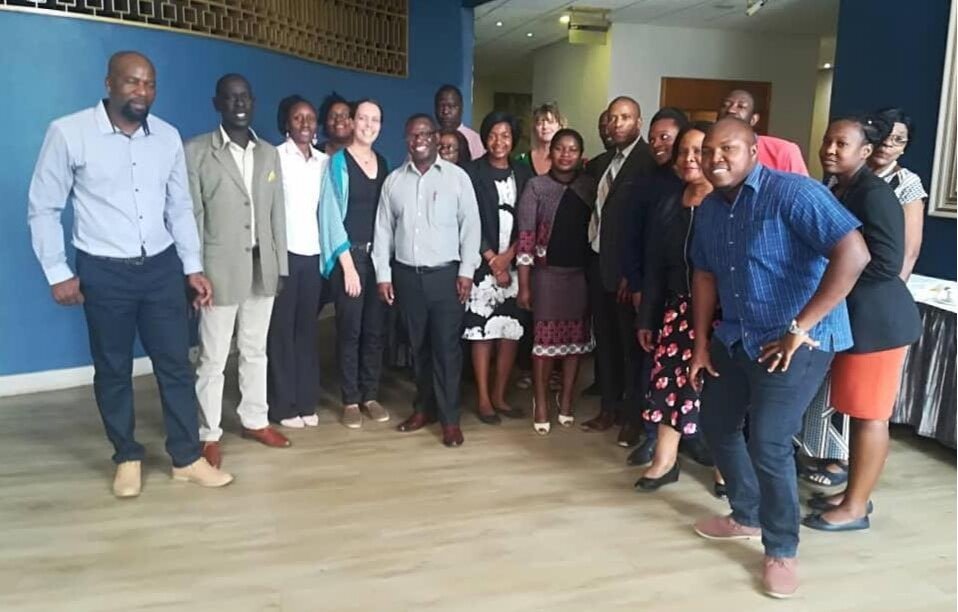Commission Members
Commissioners
Dr. G. Mhlanga — Principal Director, Preventive Services, Ministry of Health & Child Care
Dr. W. Nyamayaro — PMD, Mashonaland West, Ministry of Health and Child Care
Dr. C. Tshuma — PMD, Mashonaland Central, Ministry of Health and Child Care
Dr. S. Nyaguse — Consultant Anaesthetist, Parirenyatwa and Harare Hospitals
Dr. V. Chikwasha — Bio-statistician, College of Health Sciences, University of Zimbabwe
Dr. M. Zaranyika — Consultant Physician, University of Zimbabwe
Dr. F. Mutseyekwa — Director, Clinical Research Centre, Africa University
Prof. H. Zeeb — Director, Leibniz Institute for Prevention Research and Epidemiology, Bremen University, Germany
Dr. S. Shamu — Health Economist, College of Health Sciences, University of Zimbabwe
Mr. T. Kadzere — Deputy Director, Policy and Planning, Ministry of Health & Child Care
Dr. G. Shambira — Department of Community Medicine, College of Health Sciences, University of Zimbabwe
Prof. M. Tshimanga — Director, Zimbabwe FETP, College of Health Sciences, University of Zimbabwe
Dr. Janneke van Diijk — Country Director, Solidarmed Zimbabwe
Dr. A. Nyakabau — Government Oncologist, Ministry of Health and Child Care
Dr. P. Chiremberengwa — Technical Director, fhi360
Ms. M. C. Madzudzo — President, Talk Cancer Zim
Dr. F. Chisanyu — President, Traditional Practitioner Association of Zimbabwe
Dr. A. Mutengerere — Project Manager, Non-Communicable Diseases, SolidarMed Zimbabwe
Dr. R. O. Gutierrez — MSF Belgium
Dr. G. T. Fana — Consultant Physician, University of Zimbabwe
Coordinators
Mr. L. Nkala — Program Manager, Ministry of Health and Child Care
Ms. V. Mushininga — Program Manager, NCD Logistics and Supply Chain, Ministry of Health and Child Care
Advisors
Dr. E. Wroe — Senior Director of Programs, NCDI Poverty Network and Center for Integration Science in Global Health Equity, Brigham and Women’s Hospital
Dr. Gasirira — Country Representative, WHO Zimbabwe
Research and Administrative Assistants
Miss T. Juru — MPH Coordinator, Health Studies Office, University of Zimbabwe
Mr. Mabhena — Health Information Officer, Ministry of Health and Child Care
Miss Lindsay Dzungu — NCDs Intern, Ministry of Health and Child Care
Zimbabwe Updates
With peer support having proved to be a key component of PEN-Plus care, the NCDI Poverty Network is developing an integrated training program for peer educators. “We’ve seen beautiful examples of young people who are unafraid to speak boldly about their condition, to be advocates, to be champions,” said Dr. Colin Pfaff, the Network’s associate director of programs. “They are living successful lives and are examples to others, which has such a powerful impact.”
Five years. Twenty-nine countries. Over a hundred PEN-Plus clinics. More than 14,000 patients. Together, the many collaborators that compose the NCDI Poverty Network deliver hope and healthcare to children, adolescents, and young adults navigating the dual challenges of poverty and severe, chronic noncommunicable diseases. And this is just the beginning.
Shumirai Magidi, a 48-year-old mother of six who lives in a quiet rural stretch of Chabata Village in the Bikita District of southeastern Zimbabwe, is known for her resilience. Yet that strength was put to the test several years ago, when her health began to fail.
The NCDI Poverty Network’s second study in a trio assessing 16 health facilities across nine countries in 2022–23, before PEN-Plus implementation, focuses on how providers deliver care, from screening and diagnosis through treatment and long-term support.
A newly published study found that only two of 16 health facilities assessed in nine lower-income countries had all the functional equipment needed to diagnose and manage care for people living with type 1 diabetes. Two of the facilities had none of the necessary equipment.
A recent intensive teaching course aimed to turn care providers already proficient in echocardiography into master trainers. Held in Kenya, the weeklong session included care providers from five countries.
The WHO Regional Office for Africa recently published a landmark report that details the impact and momentum of the PEN-Plus model, providing a valuable tool for advocacy and information about integrated care for people living with severe, chronic noncommunicable diseases.
Zimbabwe recently finalized its national operational plan for PEN-Plus, becoming the first country to do so among the dozen nations that began implementing PEN-Plus in 2022–23. “This plan shows the great commitment of Zimbabwe’s Ministry of Health and its supporting partners to take the lessons learned from its initial experience with PEN-Plus to the next level,” said Dr. Neil Gupta, senior director of policy for the NCDI Poverty Network.
Two NCDI Poverty Network physicians lent their expertise during a recent diabetes training workshop that the Sonia Nabeta Foundation hosted in Uganda.
Camps that bring together young people living with a severe noncommunicable disease are showing that the benefits of integrated care can extend far beyond clinical settings. The first such camps—held this year in Rwanda and Zimbabwe—hosted young people with type 1 diabetes, sickle cell disease, and childhood heart disease.
A recent visit to Zimbabwe by members of the NCDI Poverty Network’s Programs Team yielded encouraging updates on the country’s PEN-Plus program.
The first International Conference on PEN-Plus in Africa provided a platform for health experts, policymakers, civil society organization representatives, donors, people living with noncommunicable diseases, and community advocates to expedite political and financial backing for PEN-Plus.
The NCDI Poverty Network and the Centre for Infectious Disease Research in Zambia (CIDRZ) hosted a side event, “PEN-Plus Partnership: An NCDI Poverty Network Initiative in Partnership with WHO/AFRO,” on 29 November at the 3rd International Conference on Public Health in Africa, held in Lusaka, Zambia.
The Southern Africa Regional Hub of the NCDI Poverty Network and the Centre for Infectious Disease Research in Zambia (CIDRZ) will co-host a side event during the Third Annual International Conference on Public Health in Africa (CPHIA), which will take place at the Mulungushi International Conference Center in Lusaka, Zambia, on 27–30 November.
“Tawonashe is exactly the kind of patient for whom PEN-Plus was designed,” said Dr. Alvern Mutengerere, project manager for noncommunicable diseases at SolidarMed, the implementing partner for the PEN-Plus clinic in Masvingo.
In May, eight PEN-Plus providers in Zimbabwe received initial training in performing and interpreting echocardiograms. Those eight providers—along with seven others—were also trained in managing heart failure.
Efforts to expand PEN-Plus across sub-Saharan Africa received a major boost today, when the Leona M. and Harry B. Helmsley Charitable Trust announced a $9 million grant to the World Health Organization Regional Office for Africa to expand care for people living with severe noncommunicable diseases (NCDs).
The Maputo co-secretariat of the NCDI Poverty Network, based at Universidade Eduardo Mondlane, hosted an event marking the first anniversary of the establishment of both the Southern Africa Regional Hub and the Maputo co-secretariat of the NCDI Poverty Network on 1 February. The event encouraged discussion on how the Hub can support countries in the region in implementing the PEN-Plus model.
More than 60 representatives of leading global health policy, technical, advocacy, and financing institutions and people living with NCDs gathered at UNICEF House in New York on September 15, 2022, to introduce the PEN-Plus Partnership, a major international initiative to address the global burden of severe NCDs and injuries that cause more than 500,000 avoidable deaths every year among children and young adults living in extreme poverty.
Leading NCDI policy makers, researchers, care providers, and advocates, including the Minister of Health, His Excellency Dr. Armindo Tiago, and Dr. Orlando António Quilambo, Rector of Universidade Eduardo Mondlane (UEM), convened in Maputo on 27 October for the launch of the Mozambique Co-Secretariat and Southern Africa Regional Hub of the NCDI Poverty Network, which will be based at UEM.
The Zimbabwe NCDI Poverty Commission convened its inaugural meeting 23-24 September 2019 in Harare.


